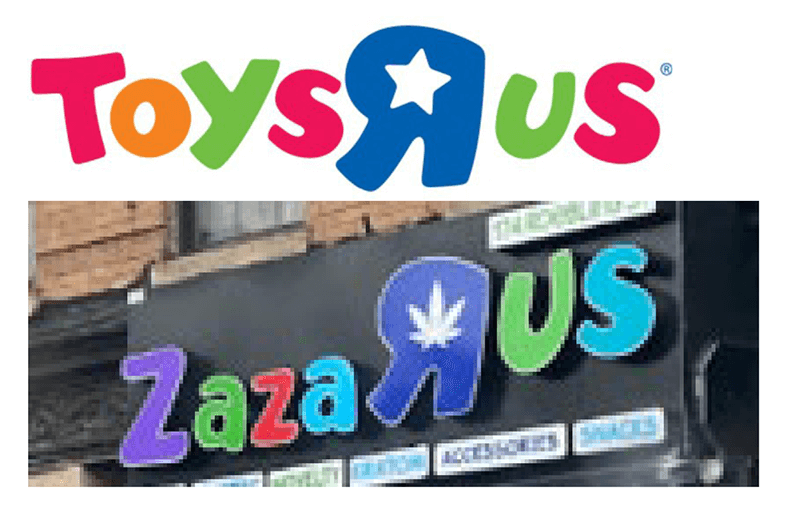IP “Do’s” for Growing Start Ups
Takeaway: Start-ups need to carefully and comprehensively develop an intellectual property strategy from the beginning that helps guide their legal future and minimize any possible risk.

Starting a business can be stressful, but you will make it easier for yourself down the line if you take the necessary precautions early on. Here are three “do’s” to help you plan ahead as your start-ups grow:
1. Form a company and get IP assignments.
Do not rely on the work-made-for-hire doctrine for intellectual property protection alone. Without proper IP assignments, your start-up could be at risk for IP complications down the road as some contributions do not qualify as work-made-for-hire. Make sure all members of the business sign assignments giving IP rights to the company.
2. Work cautiously with third parties.
Always use substantive agreements when defining how any developed IP is owned/shared between the parties before commencing technical work with third parties. Sometimes, your NDA is not enough. When in doubt, consult with an attorney to find the best type of agreement to draft between parties so there is not any confusion over who owns the IP rights.
3. File provisional patent applications early and often.
Provisional patent applications are a cost-effective way for small and large companies to preserve initial patent dates while determining whether they have something marketable and patentable. Public use can lead to last-minute patent drafting and filing efforts. This can be avoided by routinely filing provisional applications at certain inventive milestones. Patentfiler.com, created by Cislo & Thomas, is an easy-to-use online filing platform to quickly and inexpensively file and track your provisional patent portfolio.
USPTO Launches New Initiative for First-Time Filers
Takeaway: The USPTO launches First-Time Filer Expedited Examination Pilot Program to encourage innovation and allow small businesses and individuals to get to market quicker.

This month, the U.S. Patent and Trademark Office (USPTO) announced the First-Time Filer Expedited Examination Pilot Program from the Council for Inclusive Innovation (CI2). The new program benefits individuals or small businesses who are first-time filers and qualify as a “micro entity.” More specifically, the initiative expedites initial feedback, or first office actions, on these patent applications.
The primary goal of this program is to incentivize more innovation from communities all across the U.S. by allowing them to make key decisions at an earlier stages in business development and to get them to market more rapidly than average.
Per year, the USPTO receives approximately 40,000 patent applications from at least one first-time filing inventor, and this program will accept up to 1,000 petitions for expedited examination.
Publishing Houses Win Suit Against Internet Archive for “Mass Copyright Infringement”
Takeaway: A New York federal judge has ruled in favor of book publishing houses who sued the Internet Archives for lending digital copies of copyrighted books during early COVID lockdowns.
Four publishing houses accused the nonprofit digital library Internet Archive of “mass copyright infringement” for loaning out digital copies of books without compensation or permission from the publishers during the early days of the COVID pandemic. The publishing houses included Hachette Book Group, HarperCollins, John Wiley & Sons and Penguin Random House.
The Internet Archive claims its online library is legal under the doctrine of fair use, and during the lockdowns while brick-and-mortar libraries were closed, the online library practiced what they called “controlled digital lending.” The courts did not agree with their lending technique, siding in favor of the publishers.
Many believe the New York Federal Court’s decision is important in reaffirming the importance of copyright law, but the Internet Archive said it will appeal the ruling. At the moment, the Internet Archive can still scan and publish copies of books that are in the public domain.
Toys R Us Accuses New York Marijuana Store of Trademark Infringement
Takeaway: Iconic toy company files suit against marijuana store for using kid-friendly trademark logo on not-so-kid-friendly products.

The owner of Toys R Us is suing Brooklyn-based cannabis shop Zaza R Us for allegedly copying the iconic Toys R Us logo.
The Toys R Us complaint states that the Zaza R Us logo copies the bubble-like font, the reversed “R,” and an almost identical “Us.” Additionally, the iconic star at the center of the Toys R Us “R” is replaced with a marijuana leaf.
Toys R Us states that it takes immeasurable efforts to maintain its marks as a kid-friendly, fun, and safe image, and that does not align with Zaza R Us’ smoking and drug-related products.
Toys R Us sent a cease-and-desist letter to Zaza R Us in January of this year, wanting the company to destroy all material bearing the infringing logo and to pay monetary damages, but there has been no action so far.
Photo Credit: From Filing Complaint – law360.com/articles/1589841
MLB Filed and Withdrew Trademark for Word ‘Boston’
Takeaway: Several MLB teams filed trademark applications for city names, but many believe it is unlikely the applications be granted.

Earlier this month, the Major League Baseball (MLB) organization initiated a pair of in use trademark applications for the word “Boston” for clothing and entertainment services. The applications were filed under the owner “Boston Red Sox Baseball Club Limited Partnership New England Sports Ventures.”
The Red Sox team claimed that they were not aware of the filing. The team requested that the MLB withdraw the application, believing the move was aggressive. The MLB agreed and withdrew.
While many believe the trademark move was unlikely to work, other MLB teams such as the Seattle Mariners and Houston Astros have recently filed similar applications.
Cislo & Thomas LLP Spotlight
Dr. Wook Pak to be Featured on Entrepreneurship Podcast
Cislo & Thomas Partner Dr. Wook Pak is invited to speak about intellectual property and legal protection for business ideas on the “the Enlightened Entrepreneur Podcast,” hosted by Santa Barbara Community College’s Scheinfeld Center for Entrepreneurship and Innovation.
Don’t miss the live Podcast on Friday, April 21st at 2pm on their YouTube Channel HERE, or revisit the podcast if you miss it HERE.




